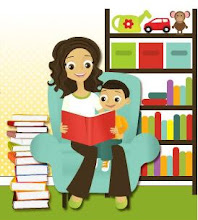
To a young child, letters are just funny symbols on a page. Some are tall and straight, others are looping with big curves. With a little guidance, you can help even a young child develop strong letter and word awareness skills so that he or she can begin to understand the important role letters and words play in our environment.
Fun games and engaging letter worksheets are simple ways to help your child.
Try this at home:
1) Read simple picture books to your child; those having just a few words or a single sentence on each page are best for this. Point to each word as you read it and encourage your child to point along with you or to point to the word after you read it aloud.
2) Label some key places in your house with the word printed in uppercase letters on a piece of paper or a note card. Some suggestions would be to label the door, window, wall, shelf, bed and drawer in your child’s bedroom.
3) Let your child dictate a thank-you note or birthday card, for example, to a relative or friend. Write each word in uppercase letters as he says it to you. Keep the message short. Read it back to your child when you are finished printing. Give your child a chance to “read” his card from memory back to you or another family member.
4) Point out words in the environment, such as STOP on the street corner or DONUTS on his favorite snack restaurant. Ask your child to point out signs he recognizes.
5) Point out words in your child’s environment, such as names on cereal or toy boxes.
6) Write your child’s name on his belongings and point it out to him when he is getting dressed or using a labeled item (such as a backpack or pencil box).
7) When reading short, simple picture books, go back to some pages and say: “Let’s count the number of words in that sentence.” And then point to each word as you count, instead of read, the word.
8) Play the “Mailman Game.” Write a short message to your child on a card and deliver it to him as if you are a mailman. Read him the message when you give it to him or when he takes it out of the envelope. “I love you.” or “Grandma is coming soon.” are some examples.
9) Let your child add to your grocery list. Write the item on the list as he watches you. When he wants you to buy something, that word will be very important to him!
10) Complete colorful alphabet letter worksheets. Pick letter coloring pages that focus on introducing one letter at a time for younger children or pick aletter awareness worksheet that focuses on many letters at a time for older children.
Renee Abramovitz is a retired preschool and kindergarten teacher and proud grandma to four beautiful little boys. Visit Renee atwww.schoolsparks.com to find a free kindergarten readiness test parents can take to see if their kids are ready to start preschool or kindergarten and hundreds of free kindergarten worksheets to help children develop critical school readiness skills.























